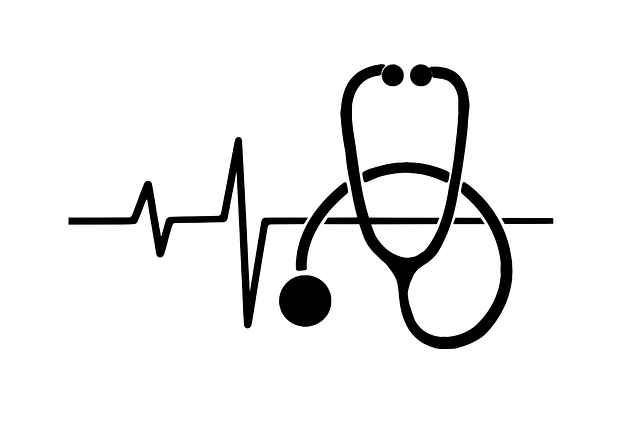Holistic health medicine takes a comprehensive approach to well-being, focusing on the interconnectedness of mind, body, and spirit. Unlike traditional care, it identifies and treats underlying causes of illness using natural methods like nutrition, exercise, stress management, and alternative therapies. Nutrition plays a vital role in strengthening the immune system through a balanced diet rich in whole foods, antioxidants, vitamins, minerals, and phytochemicals. This holistic approach emphasizes whole, unprocessed foods, diverse fruits & vegetables, whole grains, lean proteins, healthy fats, and fermented foods to enhance gut health and prevent chronic conditions. Scientific research supports specific dietary patterns for immune system enhancement. Practical steps include incorporating functional foods and cooking with fresh ingredients to empower the body’s natural defense mechanisms through holistic health medicine.
Can a holistic diet boost your immune system? This article explores the science behind holistc health medicine and its potential to enhance immunity. We delve into the principles of holistic health, understanding how nutrition plays a pivotal role in supporting your body’s natural defense mechanisms. Discover key components of a holistic diet, backed by scientific evidence, to optimize your immune function. Learn practical tips for integrating these dietary practices into your daily routine for improved overall well-being.
- Understanding Holistic Health Medicine and Its Principles
- The Role of Nutrition in Immune System Support
- Key Components of a Holistic Diet for Optimal Immunity
- Scientific Evidence Behind Holistic Dietary Approaches
- Practical Tips for Incorporating Holistic Dietary Practices
Understanding Holistic Health Medicine and Its Principles

Holistic health medicine is a healing approach that considers the entire individual—mind, body, and spirit—in pursuit of optimal well-being. Unlike traditional medicine that often focuses on treating symptoms, holistic health medicine aims to identify and address the underlying causes of illness. It believes that each part of our being is interconnected and that achieving balance within this system is key to maintaining good health.
The principles of holistic health medicine emphasize natural methods, including proper nutrition, exercise, stress management, and alternative therapies, to support the body’s inherent ability to heal itself. By adopting a holistic approach, individuals can achieve not just physical health but also mental clarity and spiritual harmony. This integrated perspective on wellness has gained popularity as people seek more personalized and comprehensive ways to improve their overall health, including strengthening their immune function naturally.
The Role of Nutrition in Immune System Support

The role of nutrition in immune system support is a critical aspect often overlooked when discussing holistic health medicine. A holistic approach to well-being recognizes that optimal health begins with nourishing our bodies with wholesome foods. When it comes to strengthening the immune response, a balanced and diverse diet plays a pivotal part. By embracing holistic health medicine principles, individuals can harness the power of nutrition to bolster their body’s natural defense mechanisms.
Consuming a variety of nutrient-rich foods ensures an ample supply of vitamins, minerals, antioxidants, and phytochemicals—all essential for maintaining a robust immune system. These dietary components help reduce inflammation, protect against oxidative stress, and support various immune cells in their vital functions. A holistic health medicine perspective encourages the consumption of whole grains, lean proteins, fresh fruits and vegetables, healthy fats, and fermented foods, which collectively contribute to a stronger, more resilient immune response, thereby enhancing overall wellness.
Key Components of a Holistic Diet for Optimal Immunity

A holistic diet for optimal immune function is enriched with a variety of whole, unprocessed foods that nourish both the body and mind. This approach to nutrition goes beyond mere caloric intake, focusing on the intricate balance of essential nutrients required for robust health. Key components include an abundance of fruits and vegetables, known for their dense nutrient content and antioxidants, which bolster immune cells and protect against oxidative stress.
Whole grains, legumes, nuts, and seeds provide a steady release of energy and vital vitamins, minerals, and fiber. These macronutrients are essential for maintaining gut health, a crucial aspect of holistic health medicine. A diverse gut microbiota supports immune system regulation, aiding in the prevention of chronic conditions. Additionally, incorporating healthy fats from sources like avocado, olive oil, and fatty fish ensures optimal cellular function and further strengthens the body’s defense mechanisms against pathogens.
Scientific Evidence Behind Holistic Dietary Approaches

Holistic health medicine advocates for a comprehensive approach to well-being, and this extends to immune function. While traditional Western medicine often focuses on treating symptoms, holistic dietary practices take a preventative and natural route. Scientific evidence suggests that specific dietary patterns can indeed influence our immune system’s performance.
Research has explored the impact of various whole foods and nutritional strategies on immunity. For instance, a balanced diet rich in fruits, vegetables, whole grains, and lean proteins is linked to enhanced immune response. These foods provide essential vitamins, minerals, antioxidants, and phytochemicals that support white blood cell function and reduce inflammation. Moreover, studies indicate that certain herbs and spices commonly used in holistic health medicine may have immunomodulatory effects, promoting a healthy balance in the body’s defense mechanisms.
Practical Tips for Incorporating Holistic Dietary Practices

Incorporating holistic dietary practices into your routine can significantly contribute to enhancing overall well-being, including a robust immune system. A holistic approach to diet considers the entire person – their unique needs, preferences, and lifestyle – rather than just focusing on specific foods or nutrients in isolation. This personalized strategy involves selecting whole, unprocessed foods that nourish both body and mind. Opting for a diverse array of fruits, vegetables, whole grains, lean proteins, and healthy fats ensures your body receives a rich tapestry of vitamins, minerals, antioxidants, and phytonutrients essential for optimal immune function.
For practical implementation, start by gradually introducing changes. Incorporate more plant-based foods into meals, aiming for a colorful variety to ensure a wide range of nutrients. Cook at home using fresh ingredients to gain control over portion sizes and minimize exposure to processed additives. Stay hydrated by drinking adequate water throughout the day. Additionally, consider incorporating functional foods known for their immune-boosting properties, such as garlic, ginger, turmeric, and dark leafy greens. Adopting these simple strategies can help empower your body’s natural defense mechanisms through the power of holistic health medicine.
Holistic health medicine offers a comprehensive approach to immune function, focusing on the interconnectedness of mind, body, and spirit. By adopting key principles from this practice, such as prioritizing whole foods, balancing gut microbiome health, and managing stress, individuals can support their immune system naturally. Scientific evidence suggests that holistic dietary approaches may enhance immunity by reducing inflammation, optimizing nutrient intake, and promoting overall well-being. Incorporating practical tips like diverse plant-based foods, mindful eating, and staying hydrated can empower folks to take charge of their health and strengthen their natural defenses.
